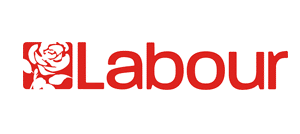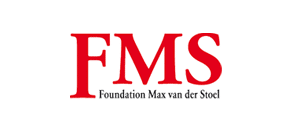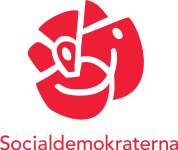North Macedonia
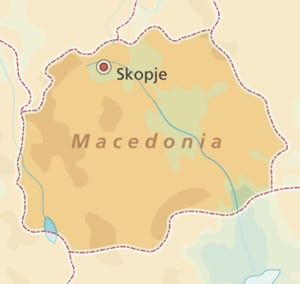
For a long time, North Macedonia has been considered a relative success story in the region: no major conflicts, a fairly successful state-building process, and no territory issues. After years of showing dedication to the Ohrid Agreement – the 2001 peace deal between the North Macedonian government and ethnic Albanians – and implementing reforms, the country received EU candidate status in December 2005. The promises of European Union (EU) and North Atlantic Treaty Organisation (NATO) membership (by 2008 the criteria for entering NATO were fulfilled) are important tools in uniting Macedonians with Albanian minorities.
However, the long-standing name dispute with Greece had long been stagnating the EU integration process and NATO membership, as Greece had been vetoing the opening of the accession negotiations. In addition, the ruling conservative Internal Macedonian Revolutionary Organization – Democratic Party for Macedonian National Unity (VMRO-DPMNE) party of Nikola Gruevski, in power between 2006 and 2016, misused the lack of progress on the European road to establish an authoritarian regime and to engage in a nationalist identity-building project. In the context of nationalism, ethnic conflicts are influencing the political landscape.
Each election, the VMRO-DPMNE and Social Democratic Union of Macedonia (SDSM) end up in a close tie. The VMRO-DPMNE is mainly focused on ethnic Macedonians, while the SDSM is more accommodating towards the country’s ethnic minorities. Following the 2020 elections, the SDSM formed a coalition with the Democratic Union for Integration (DUI), which represents the Albanian minority. DUI demanded an ethnic Albanian Prime Minister. During the strenuous coalition talks, the parties agreed to appoint an ethnic Albanian Prime Minister for the last 100 days of the mandate. The government has been challenged by a struggling economy and Bulgaria’s continuing veto of starting EU accession negotiations. In 2022, Zaev was replaced by Dimitar Kovačevski after a big defeat in local elections of 2021. On 19 July 2022, accession negotiations between the EU and North Macedonia were officially launched after the “French Proposal” brought an end to the Bulgarian veto objecting North Macedonia’s EU accession and the Prespa agreement ended the Greek veto.
-
Want to get notified by mail when this country gets updated?
Subscribe to our newsflash below!
Key Info
1 Political Situation
North Macedonia is a parliamentary republic with the prime minister as the head of government. The political organisation of the country was determined in the 1991 Constitution. The Assembly, or the Sobrania, is the only chamber of parliament and comprises 123 members. The assembly members are elected by proportional representation for a four-year term in office. In general elections, North Macedonia is divided into six constituencies electing 120 MPs each. Three seats are elected by representatives of the Macedonian citizens living abroad: one from Europe, one from North America, and one from Asia and Australia.
The combination of a lack of European perspective and nationalism has proved to be a serious threat to democracy and stability in North Macedonia: manipulation and fraud at the elections, control over the judiciary and weakening of the rule of law and media freedom, a non-functioning parliament and growing dissatisfaction among the Albanian minority.
EU accession process
North Macedonia applied for EU membership in March 2004 and obtained this status in December 2005. Accession negotiations did not officially begin until July 2022, due to the Greek blockade demanding name change and Bulgarian concerns about the Bulgarian minority in North Macedonia, before the country was allowed to begin the accession process. The European Commission is very satisfied with the commitment to reform, it writes in the 2023 enlargement report. Some progress has been made in the judiciary but judicial reform lags behind, leaving institutions without the desired capacity. Reforms in public administration are also not yet getting off the ground despite the framework that has been established. No progress has been made in anti-corruption reforms and there is limited progress in the fight against organised crime. Money laundering and terrorist financing are not effectively tackled by the authorities. Media freedom is almost fully guaranteed, but journalists’ working conditions remain challenging. North Macedonia is making progress in creating a functioning market economy, but structural problems in the economy such as the informal sector complicate the investment climate. In terms of legislation, the country has yet to commit to EU single market standards. Foreign policy is already in line with the EU and northern Macedonia is well placed in the region. North Macedonia has long been seen as a forerunner in the region when it comes to EU accession. The Commission therefore reports that negotiations and the screening process are nevertheless going “smoothly“. The important parliamentary and presidential elections in 2024 in northern Macedonia will have a significant impact on the country’s further progress towards full accession.
The 2019 Zaev “Extortion Scandal”
The previous progressive government led by Zoran Zaev (Social Democratic Union, SDSM) made promising steps in the fight against corruption and restoring the rule of law. However, the alleged wrongdoing of the Special Prosecutor for Organized Crime, Katica Janeva, has been a setback. It started when a well-known businessman, Bojan Jovanovski, was arrested on suspicion of extortion. Shortly after that, La Verita, an Italian right-wing newspaper released videos and audio recordings which allegedly showed that Janeva was offering leniency to Jovanovski and another businessman in exchange for cash. She was arrested on August 21.
The situation escalated for Zaev’s government, when, in one of the audiotapes, Jovanovski mentioned he met Zaev and suggested that he wouldn’t “make any problems”. Zaev stressed he had nothing to do with the scandal, but it had already caused a lot of commotion. The VMRO-PPMNE pressed for Zaev’s resignation, stating that the government has not done enough against corruption and one of the tops of that is involved in criminal activities. The EU was concerned too, not unsurprising, as it had asked North Macedonia to implement judicial reforms and anti-corruption measures.
Historic dispute leads to 2018 name change
There has been a dispute going on over the country’s use of the Republic of Macedonia as its official name. A region in Northern Greece shares the same name and is also closely connected to Alexander the Great and Philip of Macedon. Greece holds the opinion that by using ‘Macedonia’, the country implies claims on Greek territories. As a result, it had been using the label Former Yugoslav Republic of Macedonia (FYROM) since joining the United Nations in 1993. Originally planned as a temporary solution, it remains in use until recently. Because of the dispute, accessions to the EU and NATO have been blocked by Greece.
To solve the issue, North Macedonia agreed to change its flag by removing the Vergina Sun and proceeded to add a passage to its constitution, which is supposed to make clear that the country does not claim any Greek territories. Furthermore, the main airport and a highway to Greece were renamed beginning 2018 to disconnect it from Alexander the Great. The historical figure has been declared exclusively Greek concerning the country’s Hellenic heritage. The Greek side accepted the use of ‘FYROM’ as an official name and agreed on the possibility of continuing EU accession talks. In January 2018, the two Prime Ministers Zohav Zaev and Alexis Tsipras met and announced faster negotiations to resolve the years-long dispute.
After an almost three-decade-long dispute, North Macedonia and Greece finally settled on a historic name change agreement on June 17th, 2018. Prime Minister Zaev and his Greek counterpart Tsipras signed a landmark agreement at Lake Prespa. According to this agreement, Macedonia’s name was officially changed to “Republic of North Macedonia.” In exchange for this, North Macedonia expects accelerated NATO membership and EU-accession talks, and Athens promised not to block their initiatives anymore. The language of the country will still be “Macedonian,” and the citizens will be referred to as “Macedonians” or “Citizens of the Republic of North Macedonia.” This was an important part of the agreement for the Macedonians who wanted to protect their identity.
The agreement was answered with international and local praise, but also with protests from nationalist factions in both countries. After the Prespa Agreement was ratified by both parliaments – which was a major challenge – it had to be supported by a majority of Macedonia’s citizens. On September 30 2018 a non-binding referendum was held, inquiring about public opinion on the name-change deal. The turnout was below the 50% threshold, as only 36.8% of the Macedonians participated in the referendum. However, among those participants, 91% voted in favour of a name change, hopeful that it would remove a significant impediment to EU and NATO membership.
Despite the low turnout, the government saw the outcome as a green light to implement the name change. On October 8th, the government adopted a motion to undertake the constitutional changes, and on January 11th the parliament agreed upon the change. On January 25th, the Greek parliament also approved by 153 votes to 146 on the name change, ending the diplomatic dispute between the countries. North Macedonia is the first country in modern times (except for Austria after World War I) that forcefully had to change its name.
French proposal and Bulgaria-North Macedonia relations
Although the Prespa agreement between Greece and North Macedonia eventually lifted Greek objections to EU and NATO accession of North Macedonia, EU accession still found itself threatened by a Bulgarian veto, as Sofia demanded that their concerns about the Bulgarian language and history in the country were taken into account. Bulgaria’s position was explained through distributed documents to other member states in which it was stated that Bulgaria cannot “accept that the still ongoing nation-building process in the Republic of North Macedonia is conducted through the revision of our common history, the denial of our common ethnic and linguistic roots or the unfounded claims for the existence of a ‘Macedonian minority’ in Bulgaria.” Both countries signed a “Friendship Treaty” back in 2017 as a resolution to the issue, but Bulgaria expressed its dissatisfaction with the stagnant implementation of the accord.
Under the French EU presidency, an amendment was designed to overcome tensions between Sofia and Skopje. The so-called “French Proposal” was accepted by Macedonia’s Assembly in July 2022, which meets Bulgaria’s demands for constitutional changes to acknowledge a Bulgarian minority, protection of minority rights, and introduction of hate speech against the Bulgarian minority in the criminal code. Simultaneously, the deal would include the removal of an EU block against accession negotiations with Albania. As the leftist coalition with support from ethnic Albanian parties obtained the required two-thirds majority vote and passed the proposal, the opposition abstained from voting and left the assembly. The parliament of Bulgaria approved lifting its veto on opening EU accession talks with North Macedonia on 24 June 2022. On 19 July 2022, the start of negotiations between the EU and North Macedonia was officially launched.
The deal is a thorn in the side of some nationalist opposition parties, who claim the government led by the Social Democratic Union of Macedonia has betrayed the country. After tensions had been growing, the acceptance of the proposal sparked protests in the streets of Skopje. The daily protests were organized by the main opposition party VMRO DPMNE and the smaller opposition party Levica. The protesters’ anger is mainly focused on what they call the “Bulgarisation” of Macedonian society as a condition of entry into the EU. Both the eurosceptic VMRO DPMNE and Levica asked for referenda against the amendments, but unsuccessfully. In the aftermath, a series of attacks on Bulgarian cultural clubs in North Macedonia took place, thereby proving that the amendments to the law have not ceased tensions within society.
Ethnic rivalries and minority representation
The country, which had been relatively spared from inter-ethnic violence after the break-up of Yugoslavia, underwent great tensions from 2001 onwards when the Albanian minority started demanding more rights. The 1998-1999 war in Kosovo forced thousands of Albanians to flee to North Macedonia. Since then, the Ohrid Agreement, signed with the support of the European Union and NATO, had guaranteed a unitary Macedonian state, reinforced by its EU candidate status since 2005. Nonetheless, violence keeps on sparking regularly.
After the reforms necessitated by the Ohrid Agreement, minority representation has increased. From 2006 until the 2008 parliamentary elections, the DPA was the main vehicle for Albanian representation in government, despite being the smaller of the two ethnic Albanian parties. This led to resentment of the DUI and considerable tensions between supporters of the two parties. After the 2008 elections, Prime Minister Nikola Gruevski announced that the ruling ‘For a better Macedonia’ coalition would from now on govern in a coalition with the biggest ethnic Albanian party, which is the DUI with 18 seats. Several minority lists of smaller minorities were also part of the ‘For a better Macedonia’ coalition, including lists of North Macedonian Serbs and Turks.
Despite their increasing representation, Albanians still claim unequal involvement in government ministries and public enterprises. This contradicts the Ohrid Agreement principle, which states that “the multi-ethnic character of Macedonia’s society must be preserved and reflected in public life”, notably in the public administration. The recent agreement between SDSM’s coalition with DUI, to install an ethnic Albanian as Prime Minister for the last 100 days of the mandate, is an important breakthrough. DUI also gained two important ministries, namely Foreign Affairs and Finance & Economy.
The Roma population of North Macedonia still faces severe discrimination in the country. Inadequate access to healthcare and failure to investigate racially motivated violence against Roma in the country are some of the acts of marginalization addressed by international organizations. Despite being considered one of the region’s leaders in respecting rights of the Roma, being the first country with a minister of Romani descent, and Romani being represented in some high government positions, the ethnic minority remains marginalized, underrepresented, and lacks educational access and integration tools.
Women’s rights and female representation
The first real changes in women’s representation in parliament were reached after the 2002 elections. The percentage of female deputies rose from 7.5 percent (1998) to 17.5 percent. After the 2008 parliamentary elections, this share went further up to 32.5 percent. The rise in women’s participation was facilitated by the successful lobbying campaign of different women’s rights NGOs to secure a constitutional amendment obligating parties to include at least 30 percent of women candidates in their election lists. After the 2020 elections, 39% of representatives in parliament were female.
Women’s rights organisations, such as Kvinna till Kvinna, have not stopped there. The country has implemented several laws on gender equality, but it does not allocate any funds to implement them. Gender-based violence remains one of the most pressing issues. An OSCE survey in 2018 concluded that 45% of women in North Macedonia responded by saying that they had experienced psychological, physical, and/or sexual violence from an intimate partner. As in many other countries, the COVID-19 pandemic and following lockdown measures have disproportionately negatively affected women. There were few measures to support working parents, often causing women to cut back on working. The country also saw an increase in domestic violence against women and misogynistic hate speech.
LGBTI rights
Homosexuality has been legal in North Macedonia since 1996, but same-sex couples still do not enjoy the same rights and privileges as opposite-sex couples. North Macedonia decriminalized homosexuality in order to join the Council of Europe, as this was a precondition. In 2015, a constitutional law was adopted in parliament, which defined marriage was defined solely as a union between a man and a woman. As such, no same-sex is not legally recognized. Sexual orientation was also scrapped from the list of anti-discrimination laws in the workplace, in 2010. More recently, however, minor steps have been taken to improve the situation for LGBTI people.
In 2019 a new anti-discrimination law was adopted that did include sexual orientation and gender identity. Throughout 2020 parliament struck down the anti-discrimination law though. Another positive sign was the first Pride that was organised in Skopje in 2019, with an estimated 1,000 participants. Some state officials also joined the march, but there were also some violent incidents. Most North Macedonian citizens, especially in the rural parts, remain conservative in their opinion of homosexuality. North Macedonia’s EU candidacy will have had quite an impact on the country’s LGBTI legislation already. During 2020, however, the LGBTI community was disproportionately affected by COVID-19 measures.
In 2021, proposed amendments to the Civil Status Registration Act enabled transgender people to register their chosen gender. In 2022, Skopje organised its third-ever Pride parade, albeit with fierce resistance from some parts of society. Helsinki Committee already reported an increase in homophobic hate speech in the run-up to the second Pride event in 2021 of 31%.
2 Elections
Parliamentary elections
Parliamentary elections of 2020
Originally, parliamentary elections were scheduled to be held on 12 April 2020. However, less than a month prior to this date, the President, the President of the Parliamentary Assembly, the Prime Minister and representatives of seven political parties agreed to reschedule due to the COVID-19 pandemic. At the time of this decision, North Macedonia had relatively few COVID-19 cases. Nonetheless, in order to avoid a national health crisis and to be able to put more effort into handling the pandemic, rather than being reelected, all parties agreed that postponement would be the best option. On 15 July 2020, the elections were held at last. New parliamentary elections are expected in 2024.
The 2020 parliamentary elections had a turnout rate of only 51% and were marked by many new smaller parties running against the established factions. However, despite this development, the outcome was to be expected. Just like the previous election results in 2016, the SDSM and the VMROO-DPMNE had an extremely close tie. The SDSM in coalition with the Besa Movement obtained 46 seats, while the runner-up won 44. The DUI won 11.8% of the votes this year, which gives them 16 seats. This is a good recovery for the party, since the last elections they went from 19 to 10 seats. Alliance for Albanians in coalition with Alternative received 8.9% of the votes, equaling 12 seats. The Left got 4% (1 seat) of the votes, and the Democratic Party of Albanians with 1.6% of the votes won 1 seat in the parliament. In order to have a majority, parties need 61 seats.
Election results
| Party | % | Seats |
| Social Democratic Union Macedonia (SDSM) and Besa Movement – “We Can” | 35.8 % | 46 |
| Internal macedonian Revolutionary Organization – Democratic Party for Macedonian National Unity (VMRO-DPMNE) | 34.5 % | 44 |
| Democratic Union for Integration (DUI) | 11.8 % | 16 |
| Alliance for Albanians and Alternative | 8.9 % | 12 |
| Left | 4 % | 1 |
| Democratic Party of Albanians (DPA) | 1.6 % | 1 |
Aftermath of the election
Even though the “We can” coalition of the SDSM and the Besa Movement won the elections, they needed to form a coalition with DUI to have a majority in parliament. The coalition talks between these parties were difficult. “We can” stated during their campaign that they would not let an Albanian become Prime Minister if they secured the win. However, the DUI demanded during the talks that if they were to form a coalition with “We can”, an Albanian should fill this position. Eventually, the different factions agreed that Zoran Zaev, leader of the SDSM would become Prime Minister until the last 100 days before the next elections when an Albanian will be appointed. In addition, it was agreed that Talat Xhaferi, a member of the DUI, will remain the speaker of the parliament. The coalition now has 62 of the 120 seats in parliament.
The new government will mainly tackle the country’s corruption and crime, improve its justice system and make sure that North Macedonia is ready for EU integration. The latter is an important matter since the EU accession talks are expected to start at the end of 2020. Furthermore, creating more job opportunities, increasing salaries, helping low-income families and environmental improvement are part of the agenda. After the elections, the Left Party filed around two thousand complaints regarding issues during the electoral process. The faction did not completely trust the results because the State Election Commission had been hacked, which they stated caused inconsistencies between the casted votes and the data that was entered into the software. However, none of these complaints were actually taken care of.
Presidential elections
Presidential elections of 2019
On April 21st, the voting polls for the first round of presidential elections opened in North Macedonia. Stevo Pendarovski, supported by the ruling Social Democratic coalition (SDSM), won this round with a small margin of a few thousand votes ahead of his rival Gordana Siljanovska, who is backed by the right-wing opposition party VMRO-DPMNE. It was a close call: as Pendarovski seized 42.8% of the votes and Siljanovska 42.2%. The third presidential candidate, Blerim Reka, obtained 10.6% of the votes. He’s supported by two ethnic Albanian parties. The voting turnout was the lowest since the country’s independence. Only 41% of the people cast their vote, just slightly above the required 40% threshold for a legitimate result.
Although it was feared that the turn-out would be below 40% in the second round on May 5th, in the end, 46% of the eligible voters cast their vote. Pendarovski won the presidency with 51.7% of the votes, surpassing Siljanovska who received 44.7%. The remaining 3.61% were void. The victory of Steveo Pendarovski is expected to fortify the Social Democrats’ agenda and raises hopes to enter EU accession talks end of 2019 and to become the 30th NATO member state by 2020.
The elections were dominated by a deep division over the name-change agreement with Greece and reflected a split between the pro-Western and the nationalist camp. Pro-European voters supported Pendarovski and the adoption of the “Republic of North Macedonia” as the new name of the state. Pendarovski is in favour of the name-change deal with Greece, as it removes the biggest impediment to EU and NATO integration. Nationalists, on the other side, oppose the agreement and support Siljansovska, who promised to never use the new name. Despite being pro-European, she is opposed to the name change, arguing that North Macedonia makes too many concessions and that the country will lose parts of its identity. In the run-off elections, both candidates aimed to appeal to the Albanian ethnic minority that voted for Reka in the first round, hoping that it would give them the decisive advantage. New presidential elections are expected in 2024.
3 Political Parties
Social Democratic Parties
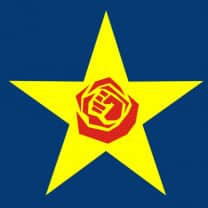
The social democratic SDSM was formed as a successor to the League of Communists in the FYROM soon after independence in 1991. From September 1992 to 1998, and from 2002 to 2006, the SDSM was the largest party in the North Macedonian parliament and the main party in the government, and has shown a moderate and reconciliatory attitude towards ethnic minorities in North Macedonia. Since the legislative elections of July 2006, the SDSM – embedded in the Together for Macedonia Coalition – had been in opposition.
The SDSM’s support-base is historically Macedonian and particularly strong in rural areas. The leadership of the “catch all” pre-electoral coalition - with members from Vlachs, Roma, Serbs, Bosniaks and Turks – provided the party with a unique, although limited and by no means permanent, cross-ethnicity appeal. The importance of this was demonstrated in the election victory of the coalition, which benefited from a solid base of Albanian support where the opposite VMRO-DPMNE could not.
The July 2006 legislative elections constituted a disappointment for the SDSM. The 'Together for Macedonia Coalition' only garnered 32 seats in the 120-seat parliament and lost its governing position to the VMRO-DPMNE. The country’s meagre economic results over the previous four years can be seen as the main reason for the SDSM failure to stay in power. Besides that, the SDSM has some issues with its image as a social democratic party. It had suffered from the party’s cooperation with the Liberal Democratic Party in the 'Together for Macedonia Coalition' and the painful reform measures that were needed in order to meet requirements for the EU negotiations.
The party made a comeback in 2016, when the party managed to gain 49 seats. This was just 2 seats less than the VMRO-DPMNE. However,it was the SDSM which allowed itself to form a stable government in the following year. In the four years afterwards, the party hoped to speed-up the country’s EU accession process. In preparation of the 2020 elections, which were postponed at first due to COVID-19, the party took part in the We Can Alliance. This alliance managed to gain 46 seats in total, with the SDSM holding 31 currently. This was a minor loss, but the alliance remained the country’s largest, ahead of the VMRO-DPMNE alliance. Following the elections, the SDSM took a leading role in the formation of a government with a wide variety of minor political parties.
SDSM is a full member of the Socialist International and a PES associate member.
Other Parties
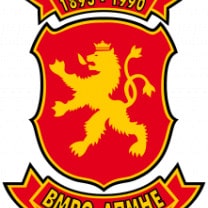
The VMRO-DPMNE has overcome its internal struggles and became North Macedonia’s largest party after the 2006 elections. It managed to expand its support base during its years in power, and won 63 out of 120 seats in the 2008 elections, granting the party’s election block an outright majority in parliament. Party leader Nikolai Gruevski after the 2006 elections became Prime Minister, and remained so after the 2008 elections. In 2009, the party had another two major successes. While the VMRO–DPMNE-led coalition 'For a better Macedonia' won in 56 out of 84 municipalities, the party's proposed presidential candidate Gjorge Ivanov also won the presidential election.
In more recent times the party has had to hand over power again to the SDSM. The VMRO-DPMNE remained the largest party after the 2016 elections, but the SDSM managed to form a government. Also after the 2020 elections, the VMRO-DPMNE did not manage to gain enough of a mandate to govern again. Its coalition, called Renewel, managed to gain 44 seats in parliament. This was just 2 seats less than the SDSM-led We Can coalition. Since then the party itself has held 37 seats in parliament, which makes it the largest party.
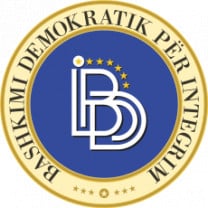
The Democratic Union for Integration (DUI, or Bashkimi Demokratik per Integrim, BDI) was formed 3 months before the elections in June 2002. It is the successor to the Albanian National Liberation Army, which fought the FYROM security forces in 2001 in the battles preceding the Ohrid Agreement. Although once on the black list of the American State Department for terrorism, it appears that party leader Ali Ahmeti is sincere in his newfound commitment to the democratic process.
In 2004 the party reaffirmed its commitment to Albanian integration in a confident multi-ethnic North Macedonia, decentralisation of power, eradication of corruption and organised crime, and for a stable FYROM integrated into Euro-Atlantic structures. Before the 2006 elections, DUI formed an electoral coalition with the Party for Democratic Prosperity (PDP) and the Democratic League of Bosniaks. This election bloc won 17 seats in parliament and DUI again became the biggest party for Albanians in North Macedonia. However, the party was not invited to join the government. In protest, the party boycotted the first sessions of the parliament and staged several road blockades in the summer of 2006.
Resentment over being left out of the coalition in favour of the smaller Democratic Party of Albanians (DPA) also led to tensions between the two ethnic Albanian parties in North Macedonia, which ultimately culminated into election violence during the 2008 parliamentary elections. In these elections, the DUI won 18 seats, again becoming the biggest ethnic Albanian party of the country. It became part of the new ruling coalition. The party has maintained an important role in forming governments. Since 2008 it has never been in opposition, always forming a coalition with either the VMRO-DPMNE or SDSM.

The Alliance for Albanians is an ethnic Albanian party founded in 2015. The party is in coalition with Alternative. Just like the Democratic Union for Integration (DUI) it focusses on Albanian minority interests. The party is classified as centre-right though, while DUI is classified as centre-left. The party holds some more conservative views on many issues. The party managed to gain 12 seats in the 2020 parliamentary elections, increasing its number from 3, and became part of the coalition.

Lëvizja Besa was formed in November 2014, as an ethnic Albanian party, by Zeqirija Ibrahimi, Bilal Kasami and the chief editor of 'Shenja' magazine, Afrim Gashi. The party aims to win more rights and respect for Ethnic Albanians in Macedonia and represent those who feel the ‘establishment’ Albanian parties are out of touch. It managed to gain 1 seat in the latest 2020 election.

Levica (translates as “the Left”) is a self-determined socialist party founded on 14 November 2015. The party is best classified as left-wing to far-left. During the 2020 elections, the party managed to gain 2 seats, after which it became an opposition party. The party is known to be a nationalist and Eurosceptic party, founded on populist demands. The party is heavily criticised for siding with Russia’s perspective on the invasion of Ukraine. Furthermore, the country uses ultra-nationalist rhetoric in its approach to foreign affairs, such as NATO and EU accession as well as bilateral relations with Albania and Bulgaria.
The party is one of the main instigators of protest rallies against the “French Proposal” which seeks to end cultural disputes with Bulgaria and lift Bulgarian objections to North Macedonia’s EU accession.
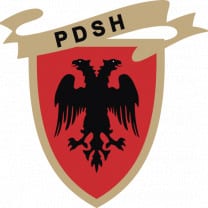
Prior to the 2006 elections the DPA campaigned alone and vowed revenge on DUI. The party collected 11 parliamentary seats and, although smaller than DUI, formed again a coalition with VMRO-DPMNE. This led to resentment with the DUI and considerable tensions between the two ethnic Albanian parties in the country, which ultimately culminated in the violent incidents marring the 2008 parliamentary vote. After this vote, the VMRO-DPMNE decided to govern with the biggest ethnic Albanian party, the DUI, and the DPA returned to opposition.
In more recent years the party has steadily declined and currently only holds one seat in parliament. However, it is part of the broad governing coalition led by the SDSM. The party is best classified as an Albanian minority interest party, centre-right to right-wing in its political views.
4 Biographies
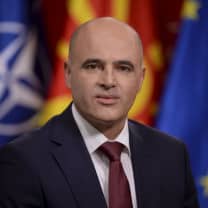
Since 17 January 2022, Dimitar Kovačevski is the prime minister of North Macedonia. He previously was deputy minister in Zoran Zaev's second cabinet (2020-2022).
Kovačevski, 48 years old, was an assistant professor at two universities in Skopje - the New York University of Skopje, and the University American College Skopje, where he worked at the Faculty of Business Economics and Management. He has been a member of the SDSM party since 1994.
After a large defeat in the 2021 local elections, Zaev resigned as PM and leader of the SDSM. In subsequent negotiations with opposition parties, Zaev survived a vote of no-confidence, preventing early elections. Kovačevski accompanied Zaev during these negotiations. On December 12, 2021, Kovačevski won the internal party elections as the favorite pick of Zaev. Subsequently, he became PM in January 2022

Stevo Pendarovski (3 April 1963) was elected president of North Macedonia on May 5th, 2019. His public career started as deputy minister for Public Relations in the Ministry of Internal Affairs between 1998-2001. Moreover, he was the head of the Analytical and Research Department of the ministry during the same period. He obtained his Bachelor of Law from Ss. Cyril and Methodius University, and then pursued a Master's degree and a Ph.D. in political science at the same university.
From 2001 to 2004 Pendarovski was National Security and Chief Foreign Policy Adviser under President Boris Trajkovski, a position he occupied again from 2005 to 2009 under President Branko Crevenkovski. He has been Professor in International Security, Foreign Policy, and Globalization at the University American College in Skopje since 2008. Pendarovski is a member of the Social Democratic Union (SDSM) and has been the party’s presidential candidate since the April 2014 presidential elections.
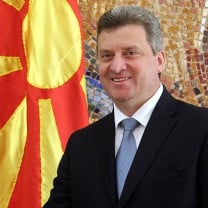
Gjorge Ivanov, born on 2 May 1960 in Valandovo, is the former President of the Republic of Macedonia. Ivanov finished primary and secondary school in his hometown Valandovo. At the age of 27 he moved to the Macedonian capital Skopje, which has since been his permanent residence. His professional career started in 1988, when he became an editor at Macedonian Radio and Television, the national broadcasting station. He later taught political theory and political philosophy at the Law Faculty in Skopje. In 1999, he became a visiting professor for the Southeast European programme at the University of Athens in Greece.
Ivanov became politically active in the Yugoslav era, when he pushed for political pluralism and a market economy. He is the founder and honorary president of the Macedonian Political Science Association and one of the founding members of the Institute for Democracy Societas Civilis, a leading analytical centre in Macedonia. On 25 January 2009, the strongest party in the Macedonian parliament, the conservative VMRO-DPMNE, appointed Ivanov as the party’s presidential candidate for the 2009 presidential elections, which they won.
On 16 April 2009, Ivanov received the presidential certificate from the State Election Commission. The main vision, which Ivanov promotes as president, is the Macedonian model of a multi-ethnic society and a Pax Europaea, a united Europe living in peace and respecting the diversity and identity of the nations of Europe.
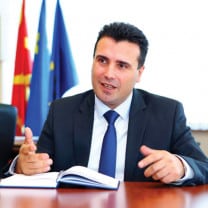
Zoran Zaev was born on 8 October 1974 in Strumica, and was the leader of SDSM. In the local elections of 2005, Zaev was chosen as mayor of the municipality of Strumica. In 2009 and 2013, he was re-elected in that position. Previously he served in parliament for several years. In 2008, he was elected to be the vice-president of SDSM, until he became the leader of the party after Branko Crvenkovski stepped down. After receiving a majority of votes at the congress of the party, he became president of SDSM in 2013.
During 2015 he was in charge of the publication of the wiretapped conversations that deadlocked Macedonian politics.
Macedonia's public prosecutor charged Zaev with espionage and with making violent threats aimed at the government to
'undermine the goals of the constitutional order'.Given all this, in the 2016 parliamentary elections, the VMRO-DPMNE managed to obtained the highest number of seats. However, the party was accused of obstructing the government formations that followed, in order to circumvent prosecution for corruption. As the SDSM was the leading opposition party, President Gjorge Ivanov initially wanted to prevent Zaev from forming a government with parties representing North Macedonia’s ethnic Albanians. He argued that such a coalition would undermine Macedonia's territorial integrity.
As a result of the dispute, the EU and NATO urged the president to allow government formations with the involvement of the opposition. Consequently, the North Macedonian president Gjorge Ivanov asked Zaev to form a government, in order to curb fears of ethnic violence in the country. Six months after the elections, in May 2017, a coalition was formed between the Social Democratic Union of Macedonia (SDSM), the Democratic Union for Integration (DUI), and the Democratic Party of Albanians (DPA). Zaev had a relatively good relationship with the Albanian ethnic minority in North Macedonia. He was a firm supporter of the participation of Albanian parties and the Tirana-platform.
In 2019, Zaev was responsible for signing the Prespa agreement with Greece on behalf of North Macedonia, which concluded a long-standing dispute over the country’s name. In January 2020, Zaev was re-elected as prime minister of North Macedonia but formally stepped down after the local elections in 2021. Simultaneously he resigned as president of his SDSM party. Due to the acceptance of his resignation by the parliament of North Macedonia, the entire government dissolved and new elections were held within three weeks. His successor as prime minister and leader of the SDSM became fellow party member Dimitar Kovačevski.
Subscribe to our newsletter
